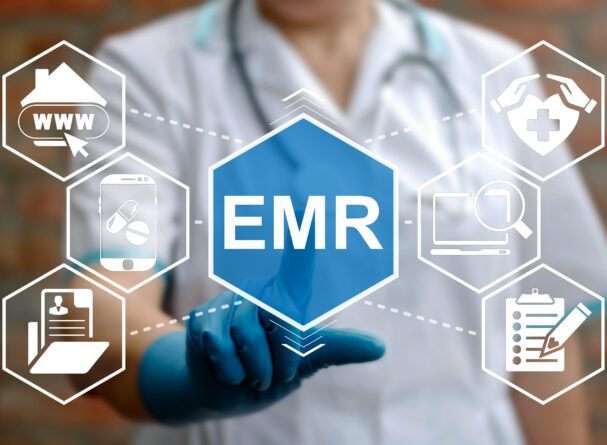Health data exchange in electronic form is crucial to improving the quality of healthcare delivery, for the safety of patients, and for better health outcomes. Efficient and effective health information exchange can reduce the possibility of medical errors and enable faster and more accurate diagnosis. This is why DHA’s NABIDH platform has been designed to enable seamless health data exchange. However, this leaves us with the lingering question of how secure is health data exchange on NABIDH.
This article aims to not only answer this question, but also to highlight NABIDH’s security standards that help to maintain the safety of patient health records on the platform.
Health Data Exchange on NABIDH: Is it Really Secure?
Health data exchange on NABIDH is highly secure. Thanks to the robust security measures that NABIDH employs to ensure confidentiality, integrity, and availability of health information, data on NABIDH remains well-protected during all stages of transit and storage. So, what are these security features that fortify health data on NABIDH?
Key Security Features Governing Health Data Exchange on NABIDH
1. Encryption:
Protecting health data is one of NABIDH’s top priorities. Therefore, NABIDH employs effective encryption methods to protect health information during transit as well as during storage. This is done using encryption algorithms to ensure that the data that is stored or shared on the NABIDH network cannot be accessed without a decryption key, even if it is intercepted.
2. Secure APIs:
NABIDH facilitates smooth and safe data exchange through secure APIs. These APIs enable real-time patient verification and record updates without compromising the safety and security of patient health information.
3. Fine-Grained Access Control:
NABIDH implements fine-grained access control to ensure that all individuals and systems making access-requests have the necessary rights and authorization to access the requested health information. This helps in thwarting security attacks effectively.
4. No-Trust Approach:
NABIDH’s no-trust model limits trust to incoming traffic, verifying incoming JWTs even if transformed from an opaque token by the gateway. This mitigates situations where a request manages to bypass the gateway. NABIDH verifies every user and device before granting access, regardless of their location or network status.
5. Robust Risk Management:
Periodic risk and vulnerability assessment and security audits are an integral part of health information security. They ensure that healthcare facilities keep track of their information security status, and promptly identify potential risks or threats to health information. NABIDH’s standards prescribe a structured approach to risk assessment. This allows them to proactively develop strategies to mitigate them.
6. Comprehensive Information Security Framework:
NABIDH Information Security Standards cover 17 key domains that address all aspects of information security. These include encryption policies, access control, incident management, and much more. These standards ensure that data security measures are implemented and maintained across every healthcare facility.
These security measures collectively ensure that data exchange on NABIDH remains secure, reliable, and fully-compliant with industry best practices.
NABIDH is a completely secure platform for health information exchange. With its highest standards of confidentiality, integrity, and availability, NABIDH facilitates seamless and secure data sharing, supporting better clinical decisions, improved patient outcomes, and enhanced care coordination. NABIDH’s advanced encryption and rigorous access controls safeguard sensitive patient information, fostering trust among healthcare providers and patients alike.

